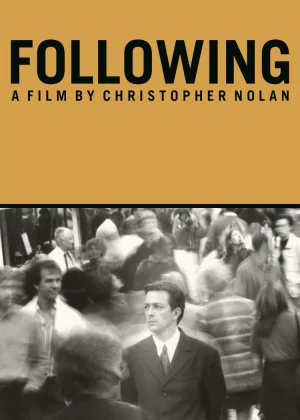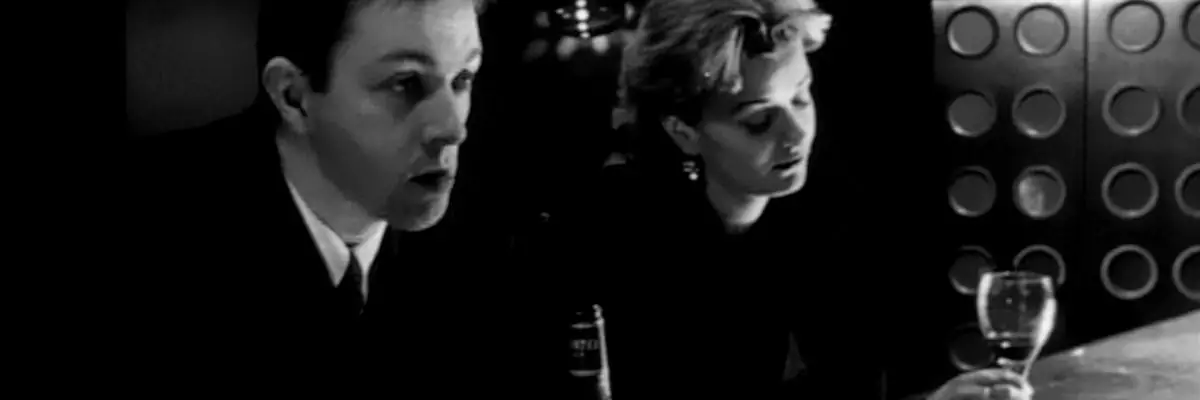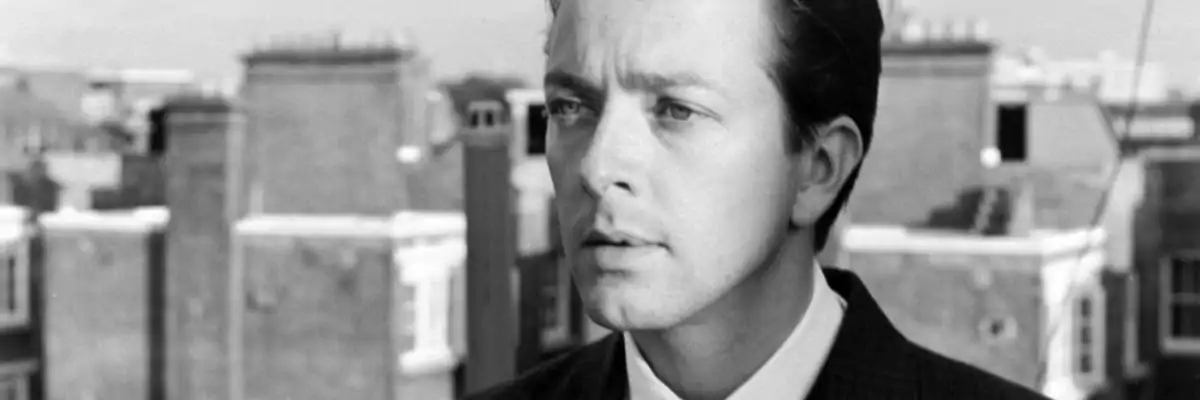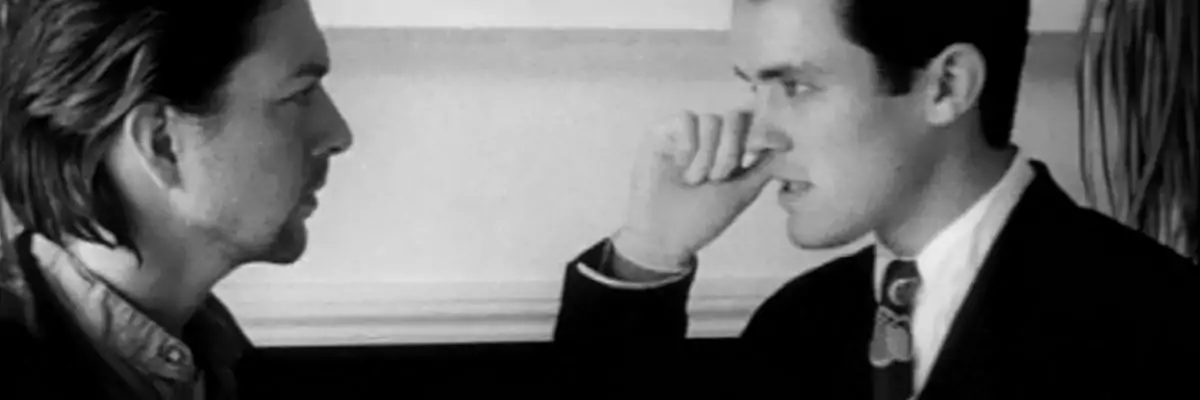Following

A long time ago, in what almost seems like a past life, I was a pretty avid Christopher Nolan supporter. I liked Memento and Insomnia, but it was Following, Nolan's first feature, that really caught my eye. A film that was intriguing, smart and streamlined, a bare-bones low budget movie that amazed despite its obvious limitations. My taste in films changed a lot since then, so when I finally sat down to watch Following again I was pretty eager to find out whether its qualities were lasting.

Nolan is the archetypical example of a director who cannot handle a budget. The more money you give him, the worse his films become. His entire career has been one slippery slide to the bottom, all the way down his latest blockbuster disaster Interstellar. He's in good company though, with people like Darren Aronofsky and Peter Jackson following very similar paths. yet Nolan is the undisputed king of budget waste, a feeling that only grew stronger when I rewatched Following.
Following was made on a production budget of just 6000 dollars, which is ridiculously small for a professional film. Nolan cut every corner he could, every element of the film is tailored to get the maximum result out of minimal effort, including the screenplay. There are no fancy visual requirements, no demanding action sequences and no need for a big cast. Following is a film that relies on an intriguing setup, a small group of actors and tried but bested audiovisual methods. And Nolan makes it work, seizing total control over the film.
The story is about a jobless wannabe writer who starts tracking random people, just for the fun of it. When he notices his new hobby is rapidly becoming an addiction, he sets up a couple of rules for himself that act as boundaries, keeping him from getting into trouble. Basically the rules prohibit him from getting too close to his victims. But one day he ends up following what looks like a thief and his curiosity gets the best of him. Little does he know the thief is actually on to him, getting more and more worked up about this unknown guy following him.

Like many other low-budget first-time efforts, Following was shot in a grainy, high-contrast black & white. It's a smart choice if you want your film to look stylish without worrying too much about the cinematography. Not that black & white is an absolute guarantee to success, but when your camera equipment is limited, it's probably the best option you've got. Following looks nice enough, but it doesn't quite compare to the likes of Pi or Tetsuo. The only truly remarkable thing is that Nolan doesn't give you any visual clues to differentiate between the flashback and the normal scenes, effectively creating an extra layer to the puzzle.
The soundtrack is subtle but interesting. Nolan chose a ambient-inspired soundtrack, going for maximum effect with minimal soundscapes. The music goes well with the black & white cinematography and blends extremely well with the dialogues. It's a bit like Pi's soundtrack, where music and dialogue become one, though once again Nolan loses the battle with Aronofsky's first. That said, Following builds on a rock solid audiovisual experience.
The cast was kept very small. It's just the three main actors and some very minor secondary parts. The actors are okay, though it's clear they aren't A-list material. Lucy Russell in particular is a bit static and lifeless. Jeremy Theobald isn't perfect either, but at least he has a good voice to fall back on. Best of the bunch is Alex Haw, it's just a little weird to see he never pursued any other acting jobs. As a group they fare well though, especially for a film like this.

Following is a film that is low-key by necessity, but that's actually what saves the movie. As the puzzle slowly unravels, there is no time or money for epic reveals. There are several twists, but no sentimental soundtrack or flashy edits to make them appear bigger than they are. There's no extra build-up, no spicing things up just for the heck of it. The plot and twists simply do their job, the mysterious atmosphere and overall intrigue do the rest. Simplicity is a real asset here and it actually makes the film more complex.
Nolan never managed to allocate the extra budget for his following films in any meaningful way. He kept writing puzzling stories full of twists and turns, but as his films grew bigger he just added a lot of pointless padding that only took away from the experience. Following is still Nolan's only masterpiece and I've got a strong feeling he's never going to return to directing smaller films. It's a shame because deep underneath the Hollywood kitsch lies a great storyteller and a more than decent director. Following may be slim and bare-bones, but it's a solid film on every level that never outstays its welcome.